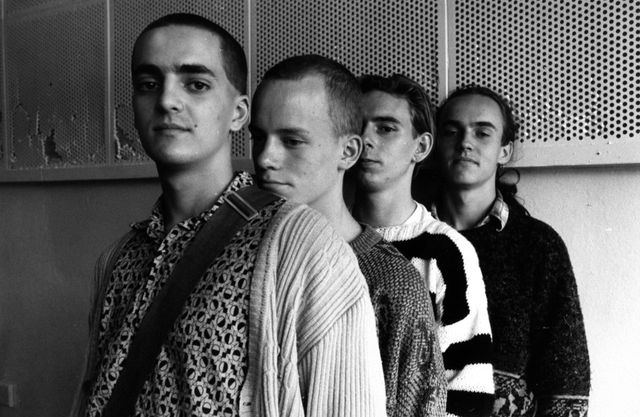Screenings
Films by Helke Misselwitz
In the presence of the filmmaker

6 pm, Lecture Hall
Ein Leben
D: Helke Misselwitz, GDR 1979, 16 mm digitized, 12 min,German OV
Haus. Frauen – Eine Collage
D: Helke Misselwitz, GDR 1982, 35 mm digitized, 15 min, German OV
35 Fotos. Familienalbum einer jungen Frau
D: Helke Misselwitz, GDR 1985, 35 mm digitized, 4 min, German OV with English subtitles
Räume
D: Helke Misselwitz, Petra Tschörtner, BRD 1990, 16 mm digitized, 12 min, German OV
This program of short films includes works ranging from Helke Misselwitz’s time as a student at the GDR’s Babelsberger Hochschule für Film und Fernsehen to a film made as part of Kinobox, a group of filmmakers within the Filmaktiengesellschaft (DEFA), as well as a film commissioned for West German television broadcaster ZDF at the time of German reunification, co-director with her colleague and friend Petra Tschörtner. Sensually as well as concretely, these films trace ways of life and women’s daily routines and labour at different times and across political systems. Through experimentation and documentation she ponders patriarchical oppression as well as women’s resilience and self-determination.
Elena Baumeister
Followed by a conversation in German between Helke Misselwitz, Elena Baumeister, and Johanne Hoppe
9.15 pm, Westgarten
Sperrmüll
D: Helke Misselwitz, BRD 1991, 35 mm digitized, 78 min, German OV with English subtitles
In Sperrmüll, the protagonist Angelika Idzikowski moves from East to West Berlin, bidding farewell to her son Enrico, a musician in the punk band that lends the film its title. Not only the border but also the future seems to be opening up. Returning repeatedly to the checkpoint at Bahnhof Friedrichstraße, Helke Misselwitz portrays a place that is symptomatic of transition, including the architectural change of the station itself. Against this backdrop, critical voices address the reunification of the country: its consequences for social relations, labor conditions, and hard-won freedoms.
Johanne Hoppe
Presented by Elena Baumeister, Johanne Hoppe (Filmmuseum Potsdam) with Helke Misselwitz